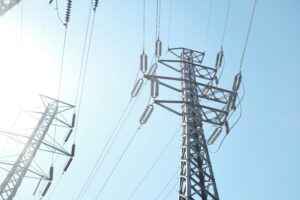How To Be Prepared For a Power Outage
 Power outages can occur for various reasons, not just due to bad weather. Being prepared for such situations can make a significant difference in terms of safety and peace of mind in your home. While it’s easy to assume that a power outage won’t affect you, taking proactive measures can save you from unnecessary stress and inconvenience.
Power outages can occur for various reasons, not just due to bad weather. Being prepared for such situations can make a significant difference in terms of safety and peace of mind in your home. While it’s easy to assume that a power outage won’t affect you, taking proactive measures can save you from unnecessary stress and inconvenience.
Creating an “out of power” kit involves considering several essential items. While blankets can be sourced from beds, it’s important to focus on other necessities such as non-perishable food, lighting options, and means of communication.
Here’s a list of items to include in your power outage safety kit:
- Non-Perishable Food: Stock up on canned goods, crackers, noodles, or vacuum-packed tuna. These items can sustain you during the outage when refrigeration is not available.
- Water: Ensure you have an ample supply of water. During a power outage, water is crucial for various purposes such as drinking, cooking, and maintaining personal hygiene.
- LED Flashlights: Opt for LED flashlights as they consume less battery power and have a longer lifespan compared to traditional flashlights.
- Emergency Radio Or Solar Cell Phone Charger: These devices will help you stay informed and connected even when the power is out.
- Candles: Invest in emergency candles that can burn for up to seven days, 24 hours a day. Look for wind-resistant options to ensure they remain lit in adverse conditions.
In addition to these essential items, there are specific considerations to keep in mind when experiencing a power outage at home:
- Unplug Sensitive Electronics: To protect your electronic devices from power surges when the electricity is restored, it’s advisable to unplug sensitive electronics.
- Minimize Refrigerator And Freezer Usage: Keep the refrigerator and freezer closed as much as possible to preserve the cold temperature inside. If the power outage is prolonged, consider transferring temperature-sensitive items like meat and dairy to a smaller cooler filled with ice.
- Discard Potentially Spoiled Food: If you suspect that your food has spoiled due to the power outage, it’s best not to risk consuming it and dispose of it safely.
While generators can be valuable during power outages, their capabilities are often limited unless you have a whole house generator. If you plan to use a generator, determine the specific appliances you want to run. Keep in mind that refrigerators typically require large generators, so consider the feasibility before relying on one. Running lighting and small portable coolers using a generator is a reasonable approach.
Remember, being prepared is essential when faced with a power outage. By assembling an appropriate kit and considering the specific needs of your home, you can navigate these situations with greater ease and confidence.


